Table of Contents
Mobile apps have become essential for modern living, offering convenience and accessibility across various services. As more people rely on smartphones and tablets, businesses can leverage mobile apps to expand their reach and enhance customer engagement.
By exploring the top mobile app development platforms, businesses can unlock the potential of this thriving market. But before diving into our recommendations, let’s delve briefly into the benefits of mobile app development platforms.
What are mobile app development platforms?
Mobile app development platforms are essential software tools for creating mobile application development across different operating systems like iOS, Android, and Windows. They offer a plethora of features and services to streamline the app development process.
There are two primary types of mobile app development platforms:
- Native app development platforms: These platforms are tailored for building apps specific to a particular mobile operating system, such as iOS or Android. They provide access to native APIs and tools, enabling developers to optimize app performance and user experience for each platform.
- Cross-platform app development platforms: These platforms enable developers to create apps that run on multiple mobile operating systems using a single codebase. By leveraging cross-platform development tools, companies can reach a broader audience without the need to develop separate versions of their app for each platform. This approach often proves to be more efficient and cost-effective, making it a popular choice for businesses aiming to maximize their app’s reach.
Benefits of Mobile App Development Platforms
- Ease of Use: Mobile app development platforms typically offer intuitive interfaces and pre-built components, streamlining the development process. This is particularly beneficial for companies new to mobile app development, as it reduces the learning curve and speeds up deployment.
- Cross-Platform Compatibility: Some platforms enable developers to create apps that work seamlessly across various mobile operating systems, such as iOS and Android, using a single codebase. This not only saves time and resources but also ensures a consistent user experience across different devices.
- Integration with Cloud-Based Services: Many platforms integrate with cloud-based services and tools, eliminating the need for developers to manage their servers and infrastructure. This simplifies the development process and allows developers to leverage powerful cloud-based features like storage, authentication, and analytics.
- Testing and Debugging Tools: Mobile app development platforms offer a suite of testing and debugging tools, including simulators, emulators, and analytics tools. These tools help developers identify and fix issues quickly, ensuring that their apps are high quality and perform well on various devices and operating systems.
Top 7 mobile app development platforms
Mobile app development platforms play a crucial role in simplifying the process of building cross-platform applications for various devices. Here’s a detailed analysis of seven of the best mobile app development platforms:
1. Xamarin
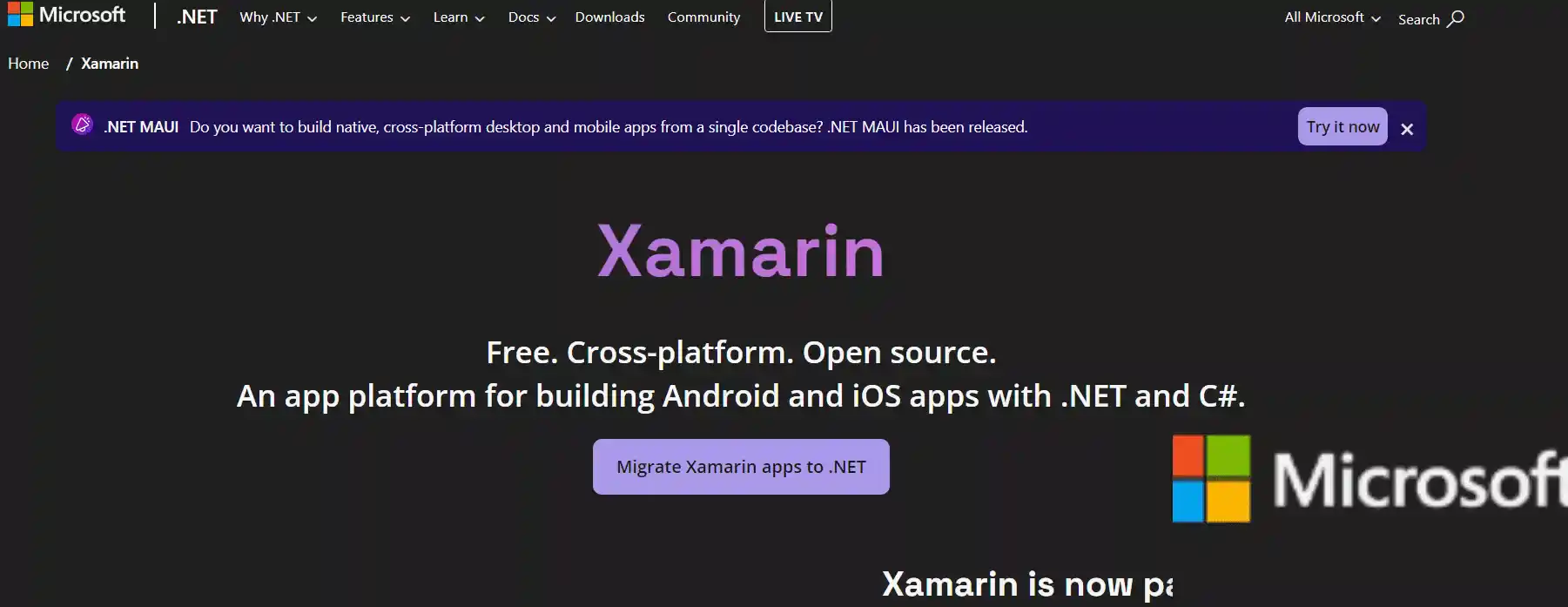
Xamarin allows developers to create native Android, iOS, and Windows apps using C# and .NET, leveraging shared code across platforms. It provides access to native APIs, delivering high-performance and native-like user experiences. With Xamarin.Forms, developers can build UIs using a single, shared codebase, further streamlining development. However, Xamarin’s initial learning curve may be steep for developers unfamiliar with C# and .NET, and its community support is not as extensive as some other platforms.
- Features:
- Code reusability: Allows developers to share up to 90% of their code across different platforms.
- Full native apps: Supports the development of fully native Android, iOS, and Windows apps using a single .NET codebase.
- Native API access: Ensures efficient apps with a truly native look and feel.
- Pros:
- Code reusability leads to time and resource savings.
- Enables the development of fully native apps.
- Cons:
- Requires a more advanced level of programming knowledge.
2. Flutter
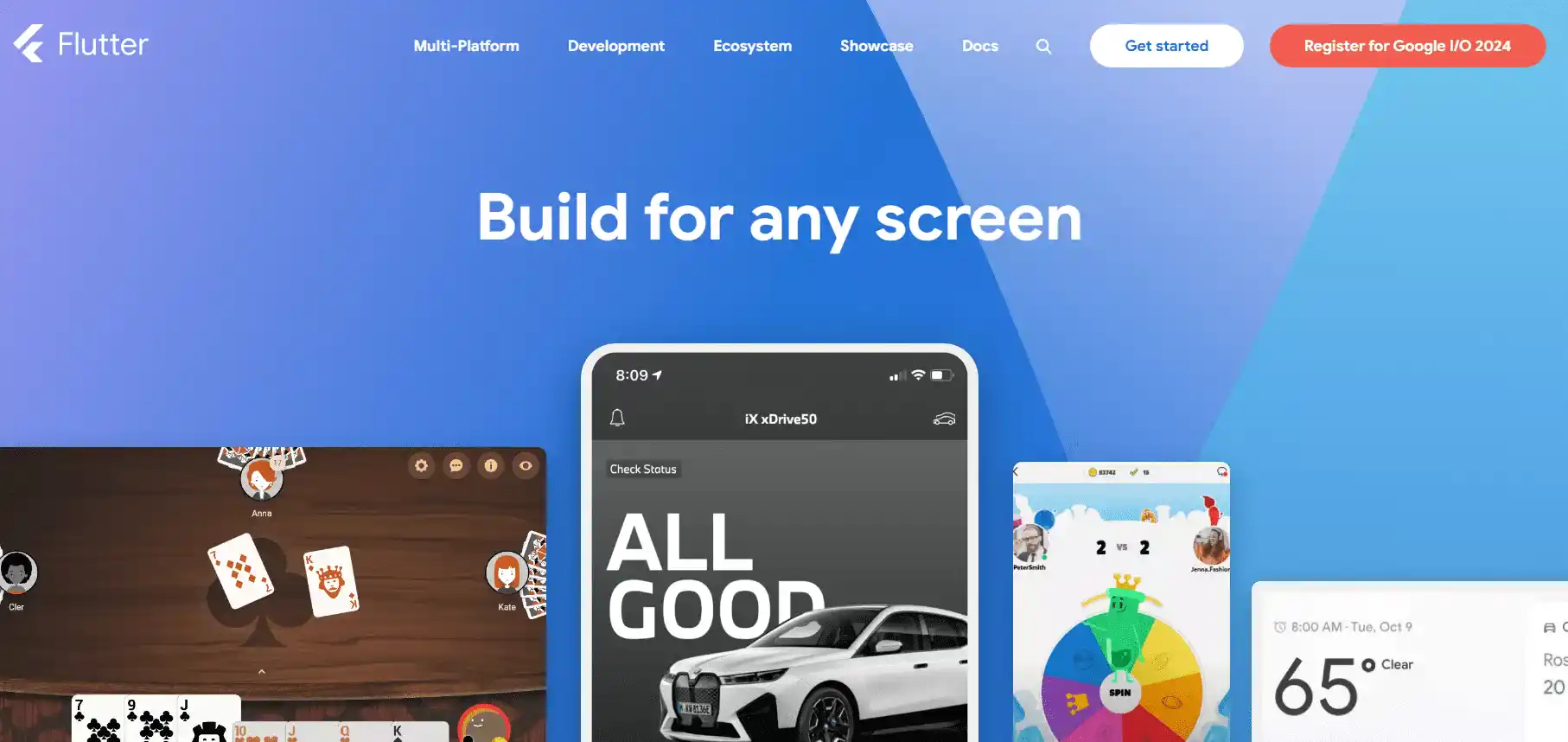
Developed by Google, Flutter is an open-source UI software development kit used to build natively compiled applications for mobile, web, and desktop from a single codebase. Its hot reload feature facilitates rapid development and debugging, while its expressive and flexible UI components enable developers to create visually stunning apps.
- Features:
- Hot reload: Allows real-time experimentation and bug fixing, speeding up development.
- Customizable widget sets: Offers ample toolsets for rapid UI coding.
- Single codebase: Enables synchronized updates across multiple platforms.
- Pros:
- The hot reload feature enhances development efficiency.
- A single codebase simplifies maintenance and updates.
- Cons:
- May not be as suitable for complex graphics and animations.
3. Cordova
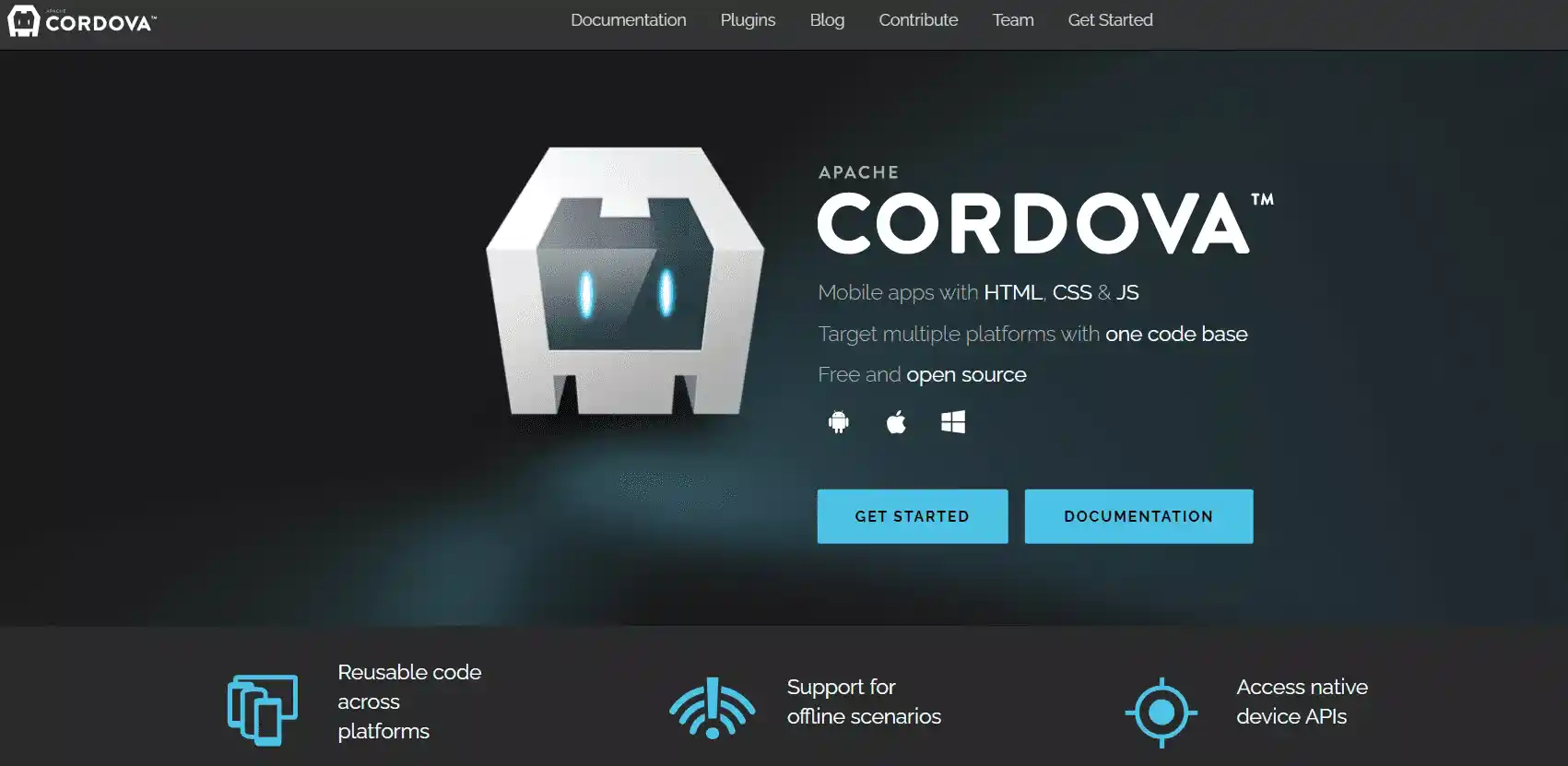
Cordova is a popular open-source mobile app development platform that allows developers to create cross-platform apps using HTML, CSS, and JavaScript. It provides a set of plugins and APIs for accessing native device features and functionality, such as the camera, GPS, and storage.
- Features:
- Universal operating systems: Allows the same app to run on different mobile OS.
- Plugin library: Provides access to native device features.
- Uses familiar technologies: Developers can create apps using HTML5, CSS3, and JavaScript.
- Pros:
- Offers cross-platform compatibility.
- Uses familiar web technologies.
- Cons:
- May not provide as smooth a user experience as some other platforms.
4. Sencha
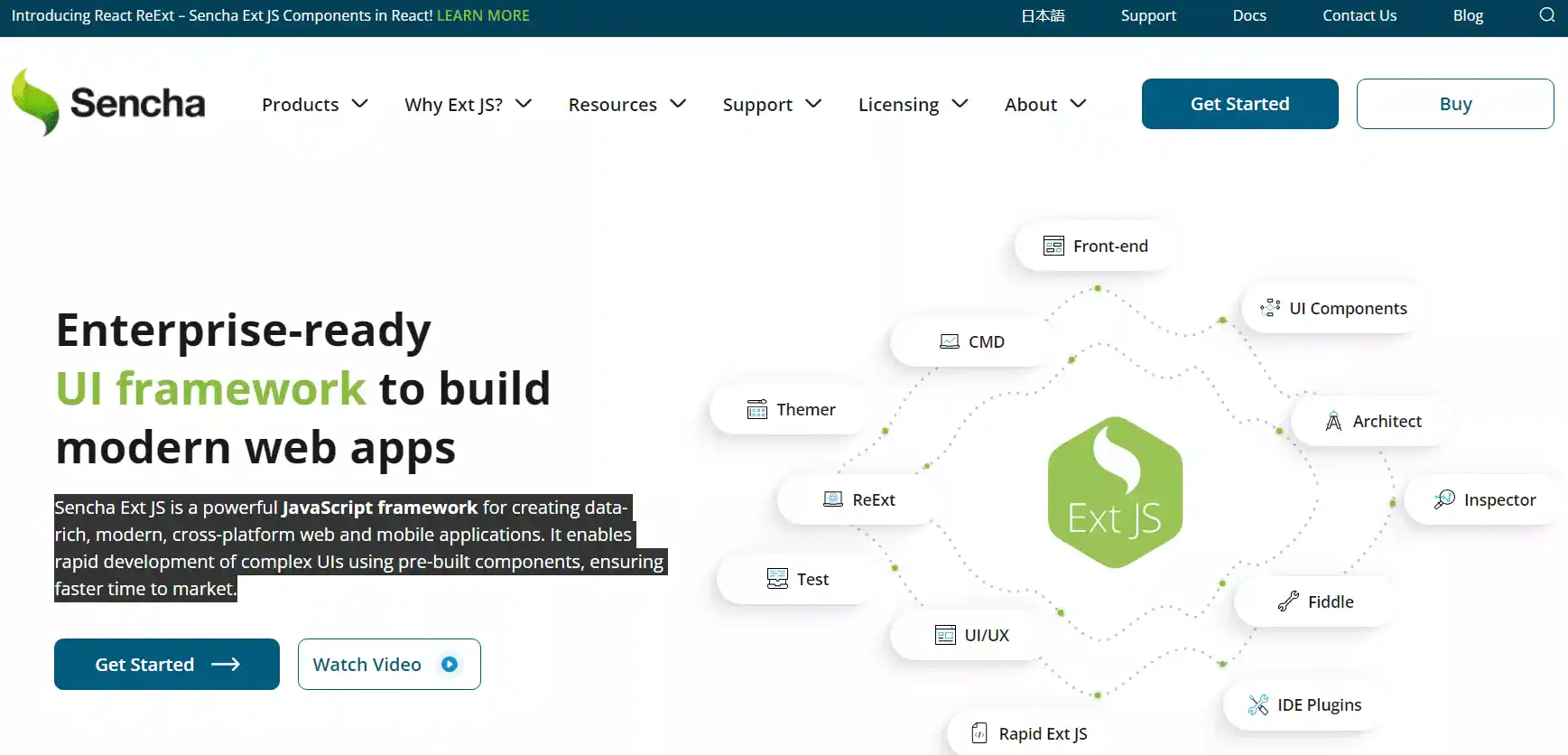
Sencha Ext JS is a powerful JavaScript framework for creating data-rich, modern, cross-platform web and mobile applications. It enables rapid development of complex UIs using pre-built components, ensuring faster time to market.
- Features:
- Visual data representation: Offers a variety of charts for diverse data perspectives.
- Extensive UI components: Provides a massive set of pre-tested and integrated UI components.
- Front-end developer friendly: Ideal for front-end developers as it’s based on JavaScript.
- Pros:
- Offers a wide range of UI components.
- Front-end developer-friendly.
- Cons:
- May have a steep learning curve for beginners.
5. Unity

Unity is a popular platform for building cross-platform mobile apps, games, and interactive content. It provides a set of tools and services for creating, testing, and deploying apps, as well as integration with a range of services and tools for building the backend of an app.
- Features:
- Advanced rendering: Ensures a rich visual experience.
- Collaboration: Provides a collaborative toolkit for teams.
- Analytics: Offers real-time insights for understanding user behavior.
- Pros:
- Suitable for building games and interactive content.
- Offers extensive collaboration features.
- Cons:
- Performance-intensive platform.
6. Ionic
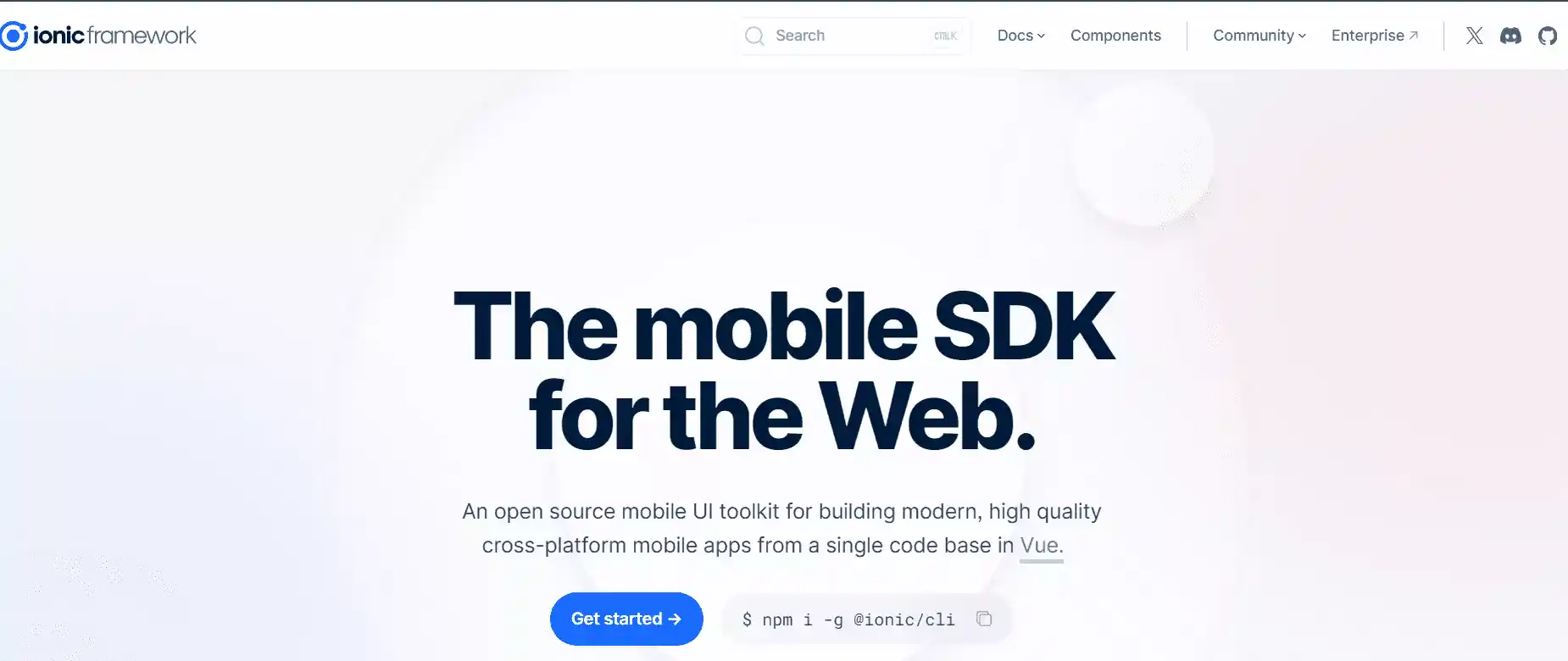
Ionic is an open-source SDK for building cross-platform mobile, web, and desktop apps using web technologies such as HTML, CSS, and JavaScript. It offers a vast library of pre-designed UI components and themes, accelerating development without compromising app quality.
- Features:
- Single codebase: Runs seamlessly on any platform or device.
- UI interface: Provides a rich set of UI features and gestures.
- Web technologies-based: Utilizes standard web technologies.
- Pros:
- Simplifies cross-platform development.
- Offers a range of UI features.
- Cons:
- May not offer the same performance as native app development platforms.
7. React Native:

React Native, maintained by Facebook, is a popular framework for building cross-platform mobile apps using JavaScript and React. It offers a large community of developers and extensive documentation, making it easy to find support and resources.
- Features:
- Like native apps: Builds mobile apps in JavaScript that perform like native apps.
- Hot reloading: Enables faster development and deployment.
- Flexibility: Integrates easily with third-party plugins.
- Pros:
- Offers a smooth and seamless user experience.
- Supports easy integration with third-party plugins.
- Cons:
- May require familiarity with JavaScript and React library.
Related Post:
Comparing Cross-Platform Mobile Development Frameworks: React Native vs. Ionic vs. Flutter vs. Xamarin
Conclusion
The choice of a mobile app development platform depends on various factors, including project requirements, developer expertise, and budget constraints. While each platform offers its unique strengths and weaknesses, developers must carefully evaluate their options to select the platform that best aligns with their needs and objectives.
By considering factors such as performance, ease of use, community support, and ecosystem maturity, developers can make informed decisions and embark on successful app development journeys.





